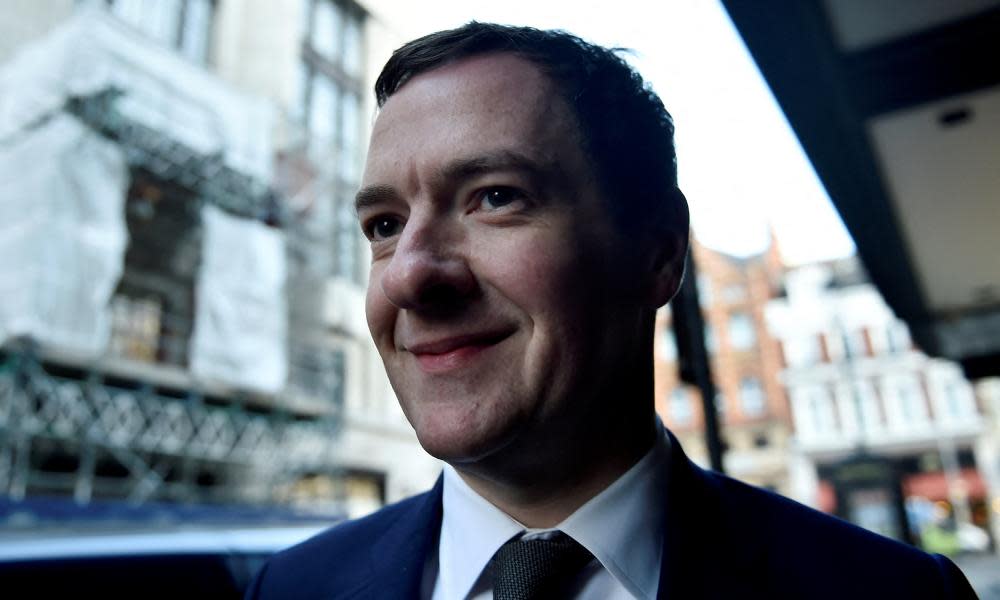A decade after the Tories demonised disabled people on benefits, it’s happening again

Few things are ever really new. British politics – and the media ecosystem that maintains it – effectively regurgitates the same talking points on repeat, a kind of Groundhog Day where the key players may appear different but familiar destructive patterns are ever-present.
It is exactly a decade since former chancellor George Osborne launched cuts to the benefits system totalling tens of billions of pounds, and with them, fuelled rhetoric so toxic that it caused an increase in hate crime towards disabled people. This was the era of Benefits Street and the Sun’s Beat the Cheat campaign, where it was quite normal for a national newspaper to invite readers to report their disabled neighbours to the benefit fraud hotline.
Fast forward 10 years and we bleakly find ourselves back here again, with labour shortages and a population in ever poorer health. Now politicians and the media are setting their sights on the so-called “economically inactive” and “record numbers” of long-term sick. “Millions paid benefits without ever having to find a job,” a recent front page in the Daily Telegraph proclaimed. It has the frenzied air of a piece of investigative journalism that has uncovered some sort of organised fraud racket.
In fact, what they’ve discovered is the welfare state: these “millions” are simply people who are too disabled or ill to work, with sickness benefits being rebranded as “jobless benefits”. Forget the research showing how hard it is to get disability benefits or the number of people who die after being found “fit for work”. The dog whistle is a familiar tune: hordes of disabled benefit claimants could hold down a job if only they weren’t so idle.
Or as Channel 5’s Jeremy Vine Show recently put it in a debate about “cracking down” on “jobless benefits” for sick people: “Is it wrong for taxpayers to fund them indefinitely?” This is what the boundaries of legitimate debate being pushed looks like: TV audiences being asked to weigh in from their living rooms on whether minorities are worthy of state support. Before you know it, “should we leave the disabled to starve to death?” is just a rational form of fiscal inquiry.
It does not take a scholar of history to know that times of economic crisis bring the vilification of marginalised groups. Like the financial crash a decade ago, the cost of living crisis of recent months has combined with gaps in the labour market to create prime conditions for demonising those whose health means they cannot earn a wage.
Rather than structural issues of soaring NHS waiting lists, a pandemic, migration rules, or disability discrimination in the workplace, having ME or depression is portrayed as an individual failing. Even the term “economically inactive” is a loaded term – a capitalist value judgment against people whose bodies “fail” to be productive and therefore useful.
That increasing numbers of families are working all day and still unable to put food on the table makes this particular story all the easier to sell. The wink to the camera is clear: while you’re struggling to pay the electric bill with your hard-earned wages, hordes of scamming benefit claimants are living the life of Riley off your taxes. The Department for Work and Pensions’ own research showing that some disabled people can’t afford food or heating on their benefits is, apparently, irrelevant.
Being in too much pain to get out of bed for work is seen not as a trauma to empathise with, but a privilege to envy. As a cleaner forced to use food banks implored on last week’s Question Time: “It seems like the unemployed get … freebies, while there’s no incentive for those of us who do work, who do try. What do we get?”
The benefit of all this for those in government and their backers is clear enough: shift responsibility away from the policy failures that have actually caused the problems, while distracting the population with a scapegoat. The DWP Twitter account posting footage of “raids on benefit fraudsters” – featuring a cabinet minister in a stab-proof vest – is a particularly crass demonstration, a pantomime that offers a digital crowd a villain to boo.
Seen through this context, the baiting headlines emerging in recent weeks are not some innocent error – they are exactly as intended. Sometimes, a mob’s pitchforks can look a lot like a broadsheet front page.
Perhaps there is some hope; contrary to the media narrative, at least two-thirds of people think universal credit rates are too low. And yet the conditions of the past decade – Brexit, a pandemic, lower living standards – point to a future of growing instability and division, not less.
A growing consensus within the political class has blocked any real change in attitudes towards social security from happening. Instead of challenging rightwing tropes, the opposition is highlighting barely existent benefit fraud.
More gravely, the collective failure to provide any real answers to lower living standards will only encourage the public to find other places to lay their resentment and blame.
In this climate, sick and disabled people are not so much human beings with needs and feelings as burdens on the state. The ease with which we keep returning to this conclusion as a society deserves as much attention as how we can change the narrative. What we can be sure of is clear: those with power and resources will always be ready to stoke the worst of our instincts to hurt those with neither.
Frances Ryan is a Guardian columnist

 Yahoo News
Yahoo News 
